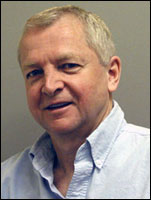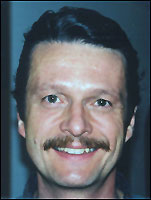

| Home I Call for Proposals I Registration I Travel I Tourism I Keynotes I Schedule I Pre-conference I Sponsors |
Keynote Speakers
 |
 |
 |
 |
I. Blending for Flexibility: Technology and strategies for the instructor Keynote Speaker Betty Collis Professor of Technology for Strategy, Learning and Change, University of Twente, The Netherlands, and Shell Professor of Networked Learning, Shell International Exploration and Production Making learning more flexible means much more than only time-and-place options. Instructors can offer their students improved logistical flexibility to increase the efficiency and convenience of learning in more than a dozen ways, but also increased interpersonal flexibility which relates to opportunities for new or enriched types of social and pedagogical interactions. In this presentation, we will show a variety of examples of both types of flexibility, taken from our actual practice and our research. By offering more flexibility and blends also brings with it increased work and increased complexity for the instructor, and often for the students as well. We will look at several of the major problems and issues that we have found in both university and corporate learning settings, and share some strategies and technology tricks that help us and our colleague instructors manage our time and work. Betty Collis is a Canadian, who after more than a decade of work in the area of computer applications in the Faculty of Education at the University of Victoria now works in Europe and also in multi-national corporations with network applications for learning. She is not only a teacher herself as well as a researcher and evaluator, but also the leader of a development team that has created a course management system to reflect ideas about learning and the role of the teacher. This system is a tool that Betty and her team use at their university, in schools and other educational settings, and also in corporate learning environments. For more, please see http://users.edte.utwente.nl/collis/ |
II. Visual Materials to Meet the Instructional Challenges of the Classroom, Lab or Web Keynote Speaker Donald Kline Professor, Vision and Aging Lab, Departments of Psychology and Surgery (Ophthalmology), University of Calgary This presentation will explore the use of well-designed visual materials to help instructors meet the mounting challenges of classroom, lab, on-line and blended learning. This will include the development of visual materials (e.g., the use of art, visual simulations, "paperless" exams, student development of instructional materials) as well as the factors that guide this process, such as the image sources and delivery systems available to the instructor and the typical and atypical visual limitations of human observers. Don Kline is a Professor in the Departments of Psychology and Surgery (Ophthalmology) and the Director of the Vision & Aging Lab at the University of Calgary where he studies the neural and optical mechanisms of visual aging, the relationships between visual health, eye surgery and visual functioning, and the impact of visual loss on everyday tasks. His teaching interests include courses on vision, aging, sensory processes, perception, and introductory psychology. His academic honours include the Research Career Development Award from the U.S. National Institutes of Health, the University of Notre Dame's Madden Award for Teaching Excellence, the President's Circle Teaching Award and two Student Union Teaching Excellence Awards, and the Ray Alward Memorial Student Service Award at the University of Calgary, and the national 3M Teaching Fellowship Award. |
III. Integrating Technology into Teaching and Learning: Success Factors for a Hybrid Learning Environment Keynote Speaker Timothy A. Pychyl Associate Professor, Department of Psychology, Carleton University, and Executive Director, Institute for the Advancement of Teaching in Higher Education There is a great deal of emphasis given to technologically-based learning innovations that provide the right learning opportunity at the right time. Playing on the WYSIWYG acronym of Web design (What You See is What You Get), this on-demand learning has been referred to euphemistically as WINWINI - What I Need When I Need It. Although the embedded "win-win" in this acronym should not be overlooked, much needs to be done to make it a reality, as the hybridization of online learning with traditional face-to-face methods requires careful planning to manage change, foster adoption and enhance learning. In this presentation, Tim Pychyl will address key issues related to how and when instructors and students might best use technology to support learning in a blended or hybrid learning environment, including: learner expectations; instructional design, learning objectives and outcomes, the role of information redundancy, creating harmony between learning environments, managing asynchronous learning with a new work tempo (24/7), as well as the reactions of learners in terms of the perceived value of eLearning. Implications for the evolution to hybrid learning environments will include a discussion of facilitating change, the impact on learning, and meeting learners' needs. An early adopter of technology for teaching and learning, Timothy Pychyl was a member of the Council of Ontario Universities Task Force on Learning Technologies and he served on the CANARIE E-Learning Program Committee. He is the Executive Director of the Institute for the Advancement of Teaching in Higher Education (www.iathe.org) and is active developing online resources for faculty with facultydevelopment.ca. Pychyl's research interest in procrastination (www.procrastination.ca) complements his passion for teaching, with a clear focus on students and their learning. He has won four teaching awards including an OCUFA teaching award (1998) and being named a 3M Teaching Fellow in 1999. |
IV. Learning Blended in the Journey of the Self Keynote Speaker Etienne Wenger Director, CPsquare and Independent Consultant; Professor, Knowledge Ecology University, Cambridge, United States What is the promise of blended learning? What kinds of new horizons does it open? The best way to address this question is to start by asking what learning itself is about. I will argue that learning is a social journey as well as a cognitive process in that it transforms our ability to participate in the human world. It is a transformation of our identity. From such a perspective, we have hardly started to understand the potential of new approaches to learning. Etienne Wenger is a globally-recognized leader in the field of communities of practice and their application to organizations. He was featured by Training Magazine in their "A New Breed of Visionaries" series. A pioneer of the "community of practice" research, he is author and co-author of seminal articles and books on the topic, including Situated Learning (Cambridge University Press, 1991), where the term was coined, Communities of Practice: Learning, Meaning, and Identity (Cambridge University Press, 1998), where he lays out a theory of learning based on the concept of communities of practice, and Cultivating Communities of Practice: a Guide to Managing Knowledge (Harvard Business School Press, 2002), addressed to practitioners in organizations. Etienne is also a founder of CPsquare, a cross-organizational, cross-sector community of practice on communities of practice. His work is influencing a growing number of organizations in the private and public sectors. Indeed, cultivating communities of practice is increasingly recognized as the most effective way for organizations to address the knowledge challenges they face. Etienne helps organizations apply these ideas through consulting, public speaking, and workshops, both online and face-to-face. His new research project is a broad, cross-sectoral investigation of the nature of learning and learning institutions at the dawn of the new millennium. |